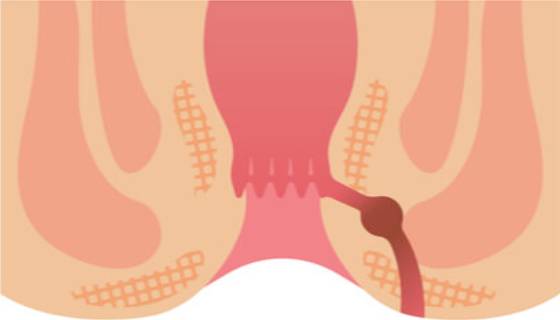Causes of Anal Fistula:
- Primary causes include clogged anal glands and anal abscesses.
- Less common causes involve conditions such as Crohn’s disease, radiation treatment for cancer, trauma, sexually transmitted diseases, tuberculosis, diverticulitis, and cancer.
Symptoms of Anal Fistula:
- Frequent anal abscesses.
- Pain and swelling around the anus.
- Bloody or foul-smelling drainage (pus) from an opening around the anus, with reduced pain after drainage.
- Skin irritation around the anus due to drainage.
- Pain during bowel movements.
- Bleeding.
- Fever, chills, and a general feeling of fatigue.
If experiencing these symptoms, it is essential to consult a doctor for proper evaluation.
Diagnosis of Anal Fistula:
- Diagnosis is often based on a physical examination of the area around the anus, looking for the fistula tract’s external opening and assessing its depth and direction.
- Additional tests may include anoscopy (examining the anus and rectum), ultrasound, MRI, or an exam under anesthesia in some cases.
- Further tests may be conducted to explore potential associations with Crohn’s disease, such as blood tests, X-rays, and colonoscopy.
Treatment of Anal Fistula:
- Surgical intervention is the primary treatment as there is no medication to cure the condition.
- For a simple fistula away from the anus, the doctor may cut open the skin and muscle surrounding the tunnel, allowing it to heal from the inside out.
- In some cases, a plug may be used to close the fistula.
- More complicated fistulas may require the insertion of a drainage tube (seton) before surgery to facilitate the removal of infected fluid.
- Surgical procedures may involve cutting into the sphincter muscles, and while efforts are made to minimize damage, there may be challenges in bowel control post-surgery.
It’s crucial to note that surgical procedures for anal fistulas can often be performed in a doctor’s office or clinic, eliminating the need for hospitalization. Patients should follow their physician’s recommendations for postoperative care and recovery.

